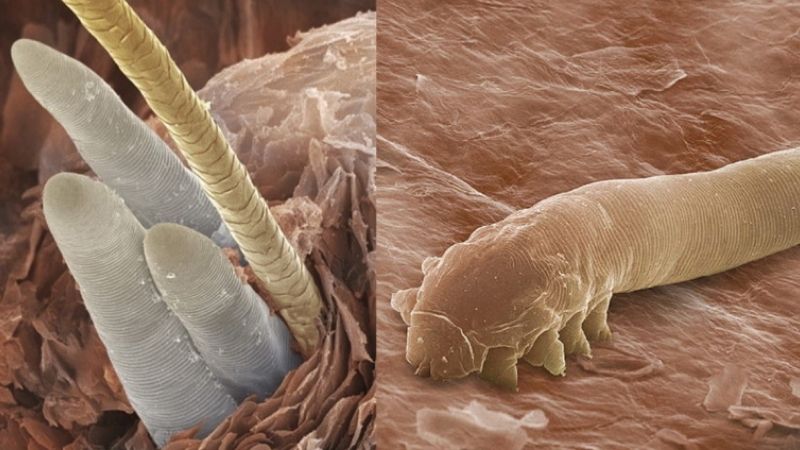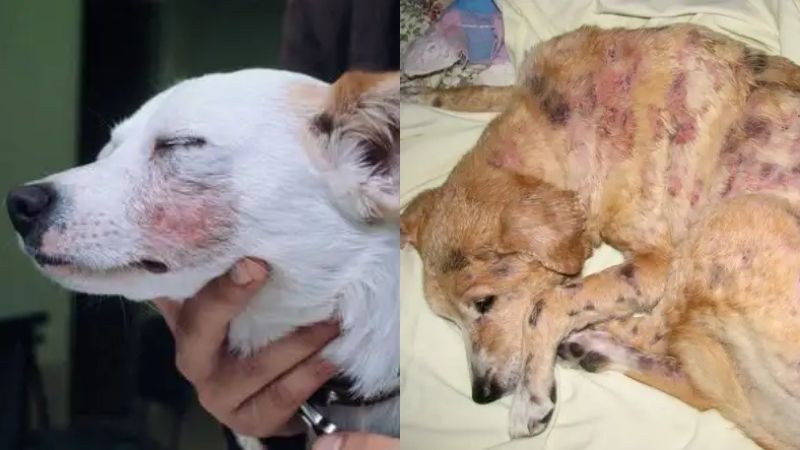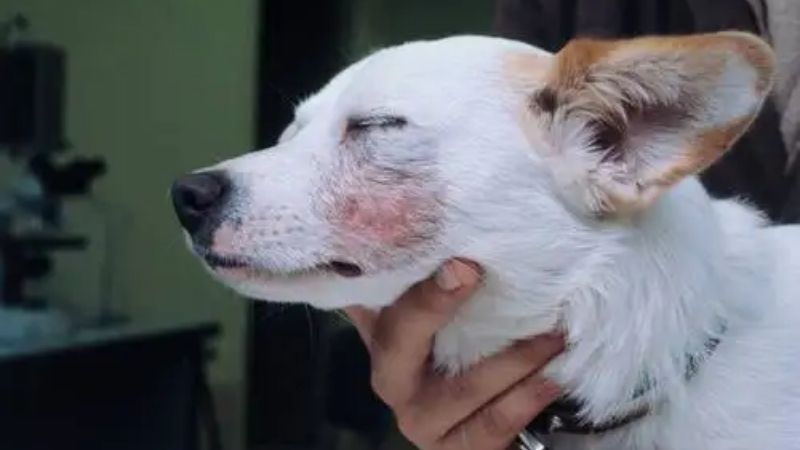Demodicosis in dogs, or canine demodicosis, is a skin condition that affects our furry friends and requires timely and effective treatment. It is important for dog owners to be aware of this condition and know how to manage it properly. Let’s explore the ins and outs of canine demodicosis, from its causes and symptoms to a range of treatment options for mild to severe cases, ensuring a swift recovery for your beloved pet.
1 Understanding Canine Demodicosis
 Canine Demodicosis: An Inflammatory Skin Disease
Canine Demodicosis: An Inflammatory Skin Disease
Canine demodicosis is an inflammatory skin condition caused by the Demodex canis mite. These tiny, elongated parasites thrive and rapidly multiply, especially in immunocompromised hosts, such as young puppies during their early nursing period. This disease can lead to discomfort and hair loss in our furry companions, so it is important to address it promptly and effectively.
Learn more about demodicosis and discover prevention methods and treatments for various canine skin ailments to keep your pet healthy and happy.
Related Topic: Timely Treatments for a Healthy and Happy Furry Friend
2 Unraveling the Causes of Severe Canine Demodicosis
The development of demodicosis in dogs can be influenced by several factors. To effectively treat and eradicate this condition, dog owners should identify and understand the underlying causes, which may include:
- Pathogen exposure through food, water, objects, or environmental factors.
- Direct contact with other infected dogs, allowing for the transfer of mites.
- Transmission from an infected mother dog to her puppies, typically occurring within a few days of nursing.
- Immune system deficiencies in older dogs, making them more susceptible to the disease.
Demodicosis can be categorized into two types: localized and generalized demodicosis, each requiring a different approach to treatment.
 Understanding Severe Canine Demodicosis
Understanding Severe Canine Demodicosis
Explore to gain insights into the causes and develop effective prevention and treatment strategies. Your furry friend deserves the best care!
Localized Demodicosis
Localized demodicosis is commonly seen in young puppies and results in hair loss in small patches. Thankfully, this form of demodicosis does not cause itching or discomfort, and it can be successfully treated using traditional home remedies.
Generalized Demodicosis
Generalized demodicosis can affect both puppies and adult dogs, leading to extensive hair loss. Additionally, the dog’s skin may develop sores and fluid-filled pustules. In severe cases, secondary bacterial infections can cause symptoms such as lethargy, loss of appetite, or fever. Treating generalized demodicosis, especially in adult dogs, requires a more comprehensive and long-term approach.
3 Effective Treatment Options for Canine Demodicosis
To ensure a full recovery from demodicosis, it is crucial to accurately identify the type and severity of the condition. In mild cases, home treatments can be effective, while severe cases may require professional veterinary care.
Home Treatment
The following is a step-by-step guide to treating demodicosis at home:
 Treating Canine Demodicosis at Home
Treating Canine Demodicosis at Home
- Camphor tablets: Grind 10 tablets into a fine powder.
- Coconut oil: 1/2 cup, slightly warmed for easier mixing.
- Sulfur powder and boric powder: 1 teaspoon of each.
- Mixing tools: mixing bowl, spoon, and soft cloth.
Combine the powdered camphor, coconut oil, sulfur powder, and boric powder in a mixing bowl to form a therapeutic blend.
Gently apply the mixture to your dog’s affected skin areas, ensuring it reaches the hair follicles. Use a soft-bristled toothbrush to gently massage it into the coat. Prevent your dog from licking by using a muzzle, and keep them calm and relaxed for about 2 hours afterward.
Note: For optimal results, repeat this process 2-3 times a week until your dog shows significant improvement.
Mild Demodicosis
 Treating Mild Canine Demodicosis
Treating Mild Canine Demodicosis
- For mild cases, consult your veterinarian for appropriate medications, and apply them directly to the affected areas. Combine this with weekly baths using a recommended shampoo for best results.
- Alternatively, Catosal injections offer an effective solution, targeting demodicosis at its source.
Generalized Demodicosis
 Treating Generalized Canine Demodicosis
Treating Generalized Canine Demodicosis
- In addition to topical applications and baths, specialized subcutaneous injections, administered twice daily, are crucial to effectively combating severe demodicosis.
- Apply topical creams to soothe the skin and prevent the formation of pustules.
- Ensure your dog receives a balanced diet rich in vitamins and essential nutrients to boost their overall health and immunity during this vulnerable period.
4 Important Considerations During Treatment
- Puppies or dogs that have previously recovered from demodicosis may experience a relapse, typically within 3-6 months after the initial treatment. Stay vigilant and seek professional advice if needed.
- Keep an eye out for any unusual symptoms and consult a veterinarian for timely and effective treatment.
- Provide your dog with a nutrient-rich diet supplemented with vitamins to support their recovery.
- Avoid harsh, alkaline, or low-quality soaps and shampoos, as they can aggravate the condition. Opt for gentle, high-quality products instead.
We hope this article has empowered you with valuable insights and practical remedies to address canine demodicosis. Remember, early detection and appropriate treatment are crucial for the swift and complete recovery of your beloved furry companion.
You May Also Like:
































